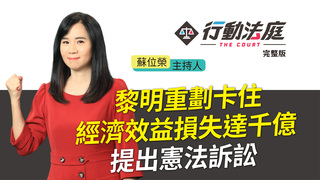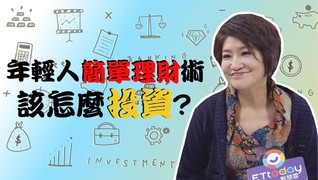
▲ 從總統府的網站,可以看到蔡英文總統多次與外國學者或政要會面。(圖/總統府提供)
● 方恩格(Ross Darrell Feingold)/前美國共和黨海外部亞太區主席
● 許淳恩/譯者
看過筆者在台灣政論節目或閱讀過筆者發表的中英文評論的人都知道,筆者經常強調台灣政治人物、媒體和選民不應過度關注外國「專家」的觀點。
那些專家離台灣很遠,每年只造訪幾次,並且往往依賴他們自身的分析,這些分析未必符合台灣的實際情況。
其中許多評論者因為想繼續得到台灣政府的資助或是想要進入台灣政府機構(如總統府和外交部)而存在偏見。當國民黨總統執政時,其中一些學者會讚揚其政策,而當民進黨總統上台時,這些學者同樣會讚揚該總統的政策。
在總統大選之前,如果民調顯示政黨輪替有可能會發生,那麼這些學者便會開始把對執政黨的讚揚轉移到他們認為可能會贏得選舉的在野黨。這樣的情況在馬英九總統任期的最後幾年中發生,當時明顯可以看出在2016年的總統選舉中,國民黨將會輸給民進黨。
然而,台灣的政治人物和政黨仍持續對某些外國學者或前政府官員抱持著崇敬的態度。
台灣總統府的網站顯示蔡英文總統多次與這些外國學者或政要會面。國民黨的推特帳號則顯示朱立倫主席與外國學者或政要合照,儘管這些人從來不會讚揚國民黨或其總統候選人侯友宜。但如果侯友宜贏得了總統選舉,他們可能會開始讚揚他!
對外國學者和智庫的盲目崇拜並不能幫助這些政治人物贏得選舉。這就是為什麼筆者一再強調台灣政治人物不需要訪問華府與美國政府進行「面試」,包括侯友宜和柯文哲在內。沒有必要在華府知名智庫發表演講,也沒有必要與華府、紐約或其他地方的學者進行閉門會議。
根據近日媒體報導,國民黨總統候選人侯友宜預計在9月時訪問華盛頓特區。國民黨真的相信,在投票日前4個月,侯友宜該遠離台灣、而不在與選民會面更加重要嗎?國民黨真的相信外國學者或美國政府官員會對侯友宜說什麼好話嗎?國民黨會避免柯文哲在訪問華府期間與之後所遇到的相關問題嗎?
不管葛來儀說什麽,總統和立委誰當選將由台灣選民來決定,而不是由美國或中國政府來決定。更重要地是,這些選舉結果當然也不會被外國學者、外國政客或外國媒體所左右。
外國學者、外國政客、外國YouTube自稱專家,或外媒應該謹言慎行,不要干涉台灣的選舉。

▲ 台灣政治人物不需要訪問華府與美國政府進行「面試」。(圖/國民黨提供)
►►►思想可以無限大--喜歡這篇文章? 歡迎加入「雲論粉絲團」看更多!
【英文版】
Those who have seen this author on Taiwan political talk shows or read the commentaries that I have published in English and Mandarin know that I often say Taiwan politicians, media, and voters should not pay so much attention to what foreign "experts" say.
These experts live far away from Taiwan, only visit a few times a year, and often rely on their own analysis which is not necessarily consistent with realities in Taiwan.
Many of these commentators are biased in order to maintain funding from the Taiwan government or access to Taiwan government agencies such as the Presidential Office and Ministry of Foreign Affairs. When there is a Chinese Nationalist Party president, some of these scholars will praise its policies, and when there is a Democratic Progressive Party president, these scholars similarly praise that president’s policies.
If, prior to a presidential election, polls indicate that a switch in political party is likely, the scholars will begin to switch their praise from the current government to the party that they think is likely to win. Such occurred in the final years of Ma Ying-jeou’s presidency when it was obvious that in the 2016 presidential election, the Chinese Nationalist Party would lose the presidency to the Democratic Progressive Party.
Yet Taiwan’s politicians and political parties continue to treat certain foreign scholars or former government officials with godlike admiration.
The Presidential Office website shows President Tsai Ing-wen repeatedly meeting such foreign dignitaries. The English language Twitter account of the Chinese Nationalist Party shows Chairman Eric Chu taking photos with foreign dignitaries, even though none of them will ever praise the Chinese Nationalist Party or its presidential candidate Hou You-yi (though they might start to praise Hou if he wins the presidential election).
The silly godlike admiration for foreign scholars and foreign think tanks does not help these politicians win elections. That is why this author has repeatedly said that Taiwan politicians do not need to visit Washington DC to “interview” with the United States government, including Taiwan People’s Party Chairman Ko Wen-je. There is no need to make a speech at prominent think tanks in Washington DC, and there is no need to have closed door meetings with scholars in Washington DC, New York City, or elsewhere.
In recent days media reports say that Chinese Nationalist Party presidential candidate Hou You-ih plans to visit Washington DC in September. Does the Chinese Nationalist Party really believe that four months before voting day, it is more important for Hou to be away from Taiwan and not meeting voters in Taiwan? Does the Chinese Nationalist Party really believe that foreign scholars or United States government officials will say nice things about Hou? Does the Chinese Nationalist Party will avoid the issues that Ko Wen-je encountered during and after his visit to Washington DC?
This author hopes that the latest controversy over what Bonnie Glaser said is a reminder that the winners of the current presidential and legislative election campaign is to be decided by the voters and people of Taiwan. It is not an election to be decided by the US government or the China government. It certainly is not decided by foreign scholars, foreign politicians, or foreign media.
Foreign scholars, politicians, YouTube self-proclaimed experts on Taiwan, and media should also carefully chose their words, and not interfere in Taiwan’s election.
●本文獲授權,轉載自「中時評論網」。以上言論不代表本網立場,歡迎投書《雲論》讓優質好文被更多人看見,請寄editor88@ettoday.net,本網保有文字刪修權。







我們想讓你知道…對外國學者和智庫的盲目崇拜並不能幫助這些政治人物贏得選舉。